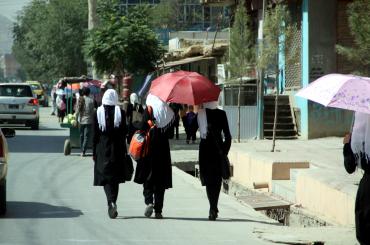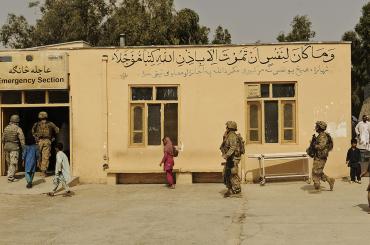
Afghanistan
-

Building state capacity in fragile states: Evidence from Afghanistan
The Mobile Salary Payment (MSP) reform in Afghanistan was an ambitious effort to build administrative capacity in one of the world’s most fragile states. Evidence on its impacts sheds light on what helps to improve state performance, and how fragilit...
-

Can digital humanitarian aid reach vulnerable populations in fragile states?
Evidence from Taliban-controlled Afghanistan shows that digital aid is a cost-effective, credible, and efficient way to reach vulnerable populations, in this case poor, tech-illiterate, female-headed households, in fragile states.
-

The impact of a gender quota on women’s education in Afghanistan
Gender gaps in access to education have persisted in low- and middle-income countries, despite all but closing in high-income countries. Affirmative action for women in public universities in Afghanistan increased the share of women admitted by 32%. ...
-

Evaluating the impact of the Targeting the Ultra Poor programme in Afghanistan
Two years after receiving a ‘big push’, women in some of the country’s poorest households perform better across many dimensions, including equality
-

Increasing civilian cooperation in security operations: Evidence from Afghanistan
Exposure to radio messages on the dangers of roadside bombs increases locals’ cooperation with military forces to reduce security threats
-

How not to disengage from a conflict: Evidence from NATO’s war in Afghanistan
Strategic miscalculation during Afghanistan’s first security transition may have contributed to its current resurgence of violence
-

Resources and conflict: The role of law enforcement and group competition
The effect of illegal ‘resources’ on conflict depends on the country context, group competition, and the government’s capacity to enforce laws
-

Reconstruction and conflict: Losing hearts and minds
A study finds that military-led projects in the Afghan health sector alleviate violence, whereas those in the education sector actually provoke conflict